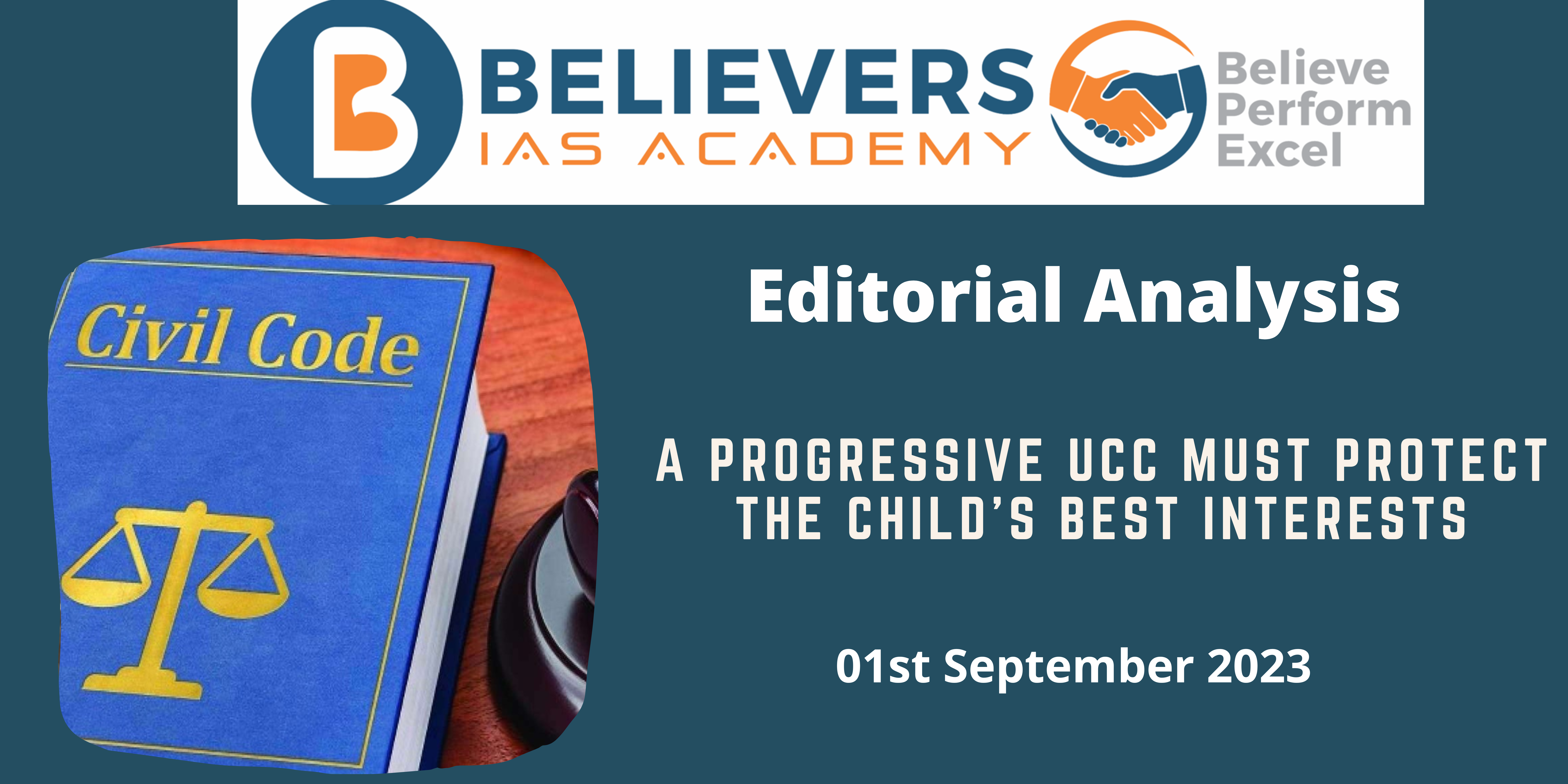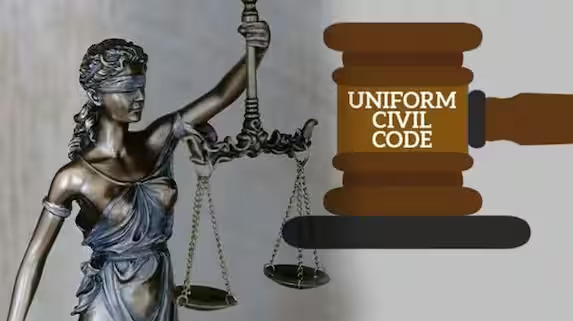A Progressive UCC Must Protect the Child’s Best Interests
Context:
As discussions about the potential introduction of a Uniform Civil Code (UCC) by the government has surfaced, it’s essential to broaden the scope beyond traditional topics like polygamy and divorce. The UCC should not limit itself to altering the rule that designates the father as the natural guardian; it must go further by unequivocally establishing the principle of the ‘best interests of the child’ in all custody disputes. It should also challenge the absolute rights of biological parents over adoptive parents.
Relevance:
GS-02 (Government Policies and Interventions)
Prelims:
- Fundamental Rights
- Law Commission
- Directive Principles of State Policy
- Uniform Civil Code
Mains Question:
Why is it crucial to have a Uniform Civil Code (UCC) for the nation and discuss the potential challenges and benefits of this approach. 150 words.
Dimensions of the Article:
- Custody Laws in India
- Different Approaches to Child Custody
- Complex Custody Issues
- Protecting Adoptive Parents’ Rights
Custody Laws in India:
- In India, laws governing child custody have evolved over the years, with considerations shifting towards the welfare of the child as the primary concern.
- For instance, the Guardians and Wards Act of 1890 emphasizes the child’s well-being when deciding custody matters.
- However, the Hindu Minority and Guardianship Act of 1956 still designate the father as the natural guardian, followed by the mother. In practice, the mother usually retains custody until the child reaches five years of age, provided she remains Hindu. But the phrase ‘after him’ doesn’t necessarily mean ‘after the father’s lifetime’; instead, it implies ‘in the father’s absence.’
Different Approaches to Child Custody:
- Islamic law approaches child custody differently. Here, the custody right belongs to the child, not the parents. The father ranks sixth in the hierarchy of potential custodians, following the mother, maternal grandmother, paternal grandmother, sister, maternal aunt, and paternal aunt.
- In the Hanafi school, the mother retains custody until a son turns seven and a daughter reaches 17. In contrast, the Shafii and Hanbali schools grant custody to the mother until her daughter’s marriage.
- Under the Maliki school, the mother can have custody of a male child until he reaches puberty and a female child until her marriage, after which the child gains the right to choose.
Complex Custody Issues:
- However, the complexities of child custody extend beyond disputes between biological parents. Two significant issues arise – the claims of biological parents after adoption and the rights of a biological father accused of rape.
Protecting Adoptive Parents’ Rights:
- A progressive UCC must not overly emphasize biological ties. It should prioritize the rights of adoptive parents, encouraging adoption.
- Furthermore, it should not insist on the matrimonial bond between parents and should ideally provide for guardianship, even for single parents, surrogate parents, and LGBTQ+ parents.
Way Forward:
The way forward in child custody laws and a potential UCC is clear. The ‘best interests of the child’ principle should be at the forefront of all custody disputes, irrespective of biological connections. The law must protect adoptive parents’ rights and discourage the involvement of an accused rapist father in custody matters, as it sets an alarming precedent.
Conclusion:
As the government contemplates the introduction of a UCC, it must address the complexities of child custody. By prioritizing the ‘best interests of the child’ principle and safeguarding the rights of adoptive parents, the UCC can ensure a fair and equitable approach to custody matters in India.



